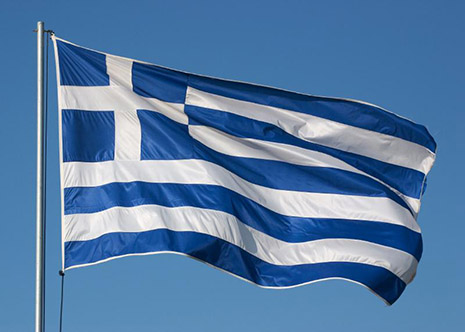Now, as the country`s creditors pressure the government to enact unpopular reforms, analysts say the government is cultivating patriotic feeling at home as a counter-weight.
"With dance and traditional garb, we will show our (EU) peers that our people are united and sovereign," said Panos Kammenos, the leader of the Independent Greeks party, the government`s junior coalition partner, ahead of this year`s annual Independence Day military parade.
The event on March 25 was accompanied for the first time in decades by folk music and dancing.
"It will send a message abroad that we are a sovereign state whose people, united, demand respect to their national sovereignty," Kammenos added.
The policy has attracted derision in some quarters.
"Dignity above all else," centrist To Vima weekly sneered in a recent editorial.
Since it cannot be won back through economics and politics, "we take refuge in rhetoric and history", the weekly said.
Analysts, however, say the new policy is a concession to Kammenos, who heads the defence ministry and is known for his chest-thumping on national matters.
He had helped Tsipras cover a two-seat shortage facing the radicals for an absolute 151-seat majority in parliament.
In an interview this month, Tsipras praised Kammenos` party as a "consistent anti-austerity force." "There is definitely an unofficial deal between Syriza and ANEL: the former are given a free hand on economic policy while the latter takes precedence on patriotic issues," political scientist Filippa Chatzistavrou said.
In addition to keeping Tsipras`s junior coalition partner happy, the patriotic shift also taps into a deep-rooted Greek sentiment of victimisation, according to researcher Elias Dinas.
"The Greek system of education, which is quite heavily focused on national history, increases the feeling of victimisation," Dinas, an associate professor of politics at Oxford University, told AFP.
Among many here, there is also the feeling that Greeks deserve better owing to the cultural achievements of their forebears in antiquity, Athens University political scientist Dimitris Sotiropoulos said.
Greek public opinion "is responsive to being told that Greece should be treated differently, that it deserves better," he said.
"It is a long-standing trait, stemming from a centuries-old attempt to link modern Greek identity to that of antiquity, which is deemed superior," he adds.
Greek history has no shortage of foreign oppressors -- from the Ottoman Empire that ruled the land for nearly four centuries, to the Germans, Italians and Bulgarians that shared the country between them during World War II, committing several atrocities.
More recently, the Americans were vilified for helping install a brutal seven-year army dictatorship from 1967-1974.
The legacy of Nazi Germany`s painful four-year occupation of Greece continues to test relations between Athens and Berlin today.
Tsipras and other senior members of his party have strongly criticised Germany`s adherence to austerity, which they say has plunged Europe into a deflationary spiral.
Further straining the climate, Greek newspapers have often depicted Germans as oppressors in Nazi uniform.
One recent cartoon in the Greek ruling party daily Avgi, showing German Finance Minister Wolfgang Schaeuble discussing what to do with the fat and ashes of Greeks in a reference to the Holocaust, prompted an official complaint from Berlin.
The latest blow came when the country`s justice minister said he was prepared to activate a 15-year-old Supreme Court ruling authorising the seizure of German property in Greece to pay for wartime reparations.
In an effort to calm tempers, Tsipras this week held his first official visit to Berlin for talks with Chancellor Angela Merkel and other senior officials.
The talks made a difference, German Foreign Minister Frank-Walter Steinmeier said afterwards.
"I am pleased that the tone in the German-Greek talks in recent days has clearly changed and clearly improved," Steinmeier said.
More about:
















































